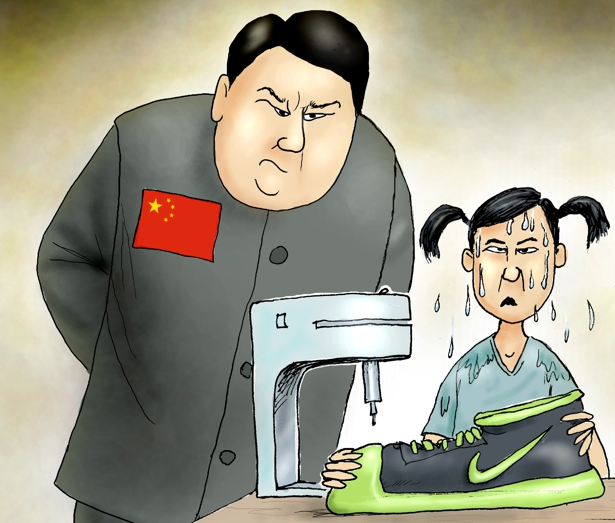By Rick Manning
The Labor Department has a fiduciary responsibility to end all private retirement investments in dangerous Chinese investments by amending the current pending regulation on Financial Factors in Selecting Plan Investments to disqualify all companies that do not adhere to the transparency requirements of Dodd-Frank and Sarbannes-Oxley.
As a former Labor Department political appointee under President George W. Bush and a member of President Trump’s Labor Transition team, I have been focused upon the importance of the Department’s oversight role on private pension investments as well as the Pension Benefits Guaranty Corporation’s solvency.
Labor Secretary Eugene Scalia’s assessment and decision on excluding risky Chinese assets from the federal employees 401(K) Thrift Savings Plan is spot on. His statement that stopping the inclusion of Chinese assets was necessary because it, “would place millions of federal employees, retirees, and service-members in the untenable position of choosing between forgoing any investment in international equities or placing billions of dollars in retirement savings in risky companies that pose a threat to U.S. national security” is exactly on point.
The obvious question is if these assets are too risky for inclusion in the federal TSP, why would they be allowed to be included in private 401(K) investments where the same argument directly applies?
The answer is that they are not, and under ERISA it is the Labor Department’s job to protect private sector retirement specific investments or pensions from choices that are unsuitably risky.
In the attached July 7 letter from National Security Advisor Robert O’Brien and Larry Kudlow, Director of the National Economic Council to the head of the U.S. Railroad Retirement Board, they state, “The NRRI’s Trust’s investment in the PRC exposes the retirement funds of railroad workers to significant and unnecessary economic risk.”
Once again the question is why should private pension investments be allowed to be put into this risk when other public retirement funds are being urged to protect their retirees by ending these investments?
O’Brien and Kudlow continue by citing the exact transparency risk which directly puts Chinese assets in conflict with both the letter and intent of ERISA, “Another key reason why the NRI Trust’s investments in PRC companies expose American railroad retirees to substantial economic risk is because the Chinese government prevents companies with Chinese operations listed on U.S. exchanges from complying with applicable U.S. securities laws, leaving investors without the benefit of important protections.”
Recently, the Pentagon determined that twenty Chinese companies are owned or controlled by the Chinese Communist Party. And in May, the U.S. Senate voted to require transparency for Chinese firms listed on American exchanges.
In addition, the U.S. Department of Labor’s Bureau of International Labor Affairs annually issues a report on countries which use child and slave labor in the manufacture of goods. China is listed not once, not twice but twelve times in the latest report for using children and slaves to make goods, many of which find their place on the shelves of U.S. retailers like Walmart. Artificial flowers, bricks, Christmas decorations, coal, cotton, electronics, fireworks, footwear, garments, nails, textiles and toys are all listed as being made with child or slave labor in China.
The very Christmas ornaments we put on our trees, the toys, clothing under that tree including the latest Colin Kaepernick shoe, and the phone or other Chinese made electronics are likely the product of the blood and toil of children and slaves.
While moral determinations are not part of ERISA, it is sickening to think that American pensions and 401(k) investors are capitalizing the grotesque abuse of helpless and oppressed Chinese religious minorities and political dissidents. Americans would be appalled to learn that they were effectively providing the capital for the enslavement of their fellow man, and the Trump Labor Department can stop it.
Nothing prevents non-retirement assets from being invested in these same Chinese companies, but allowing private retirement investments to continue to invest in non-transparent, risky assets whose reliance on slavery rightfully offends our national sensibilities is not only a violation of the Labor Department’s statutory responsibility under ERISA, it is immoral.
Given Secretary Scalia’s previous statements and those which are currently coming from the National Security Advisor and National Economic Council, I am confident that he and President Donald Trump will come to the determination that Chinese assets and other risky non-transparent assets have no place in America’s retirement portfolios.
Rick Manning is the President of Americans for Limited Government.
Adapted from a letter to Labor Secretary Eugene Scalia, dated July 9, 2020.







